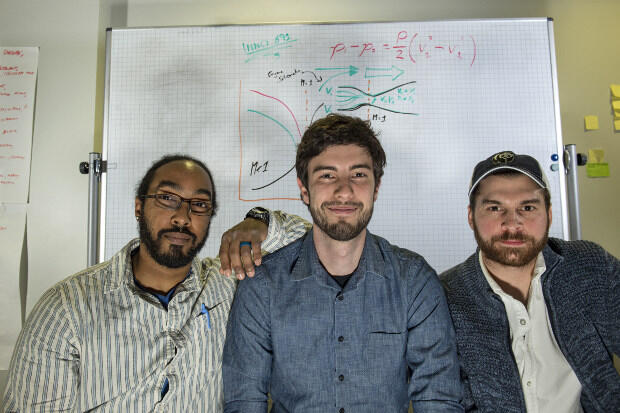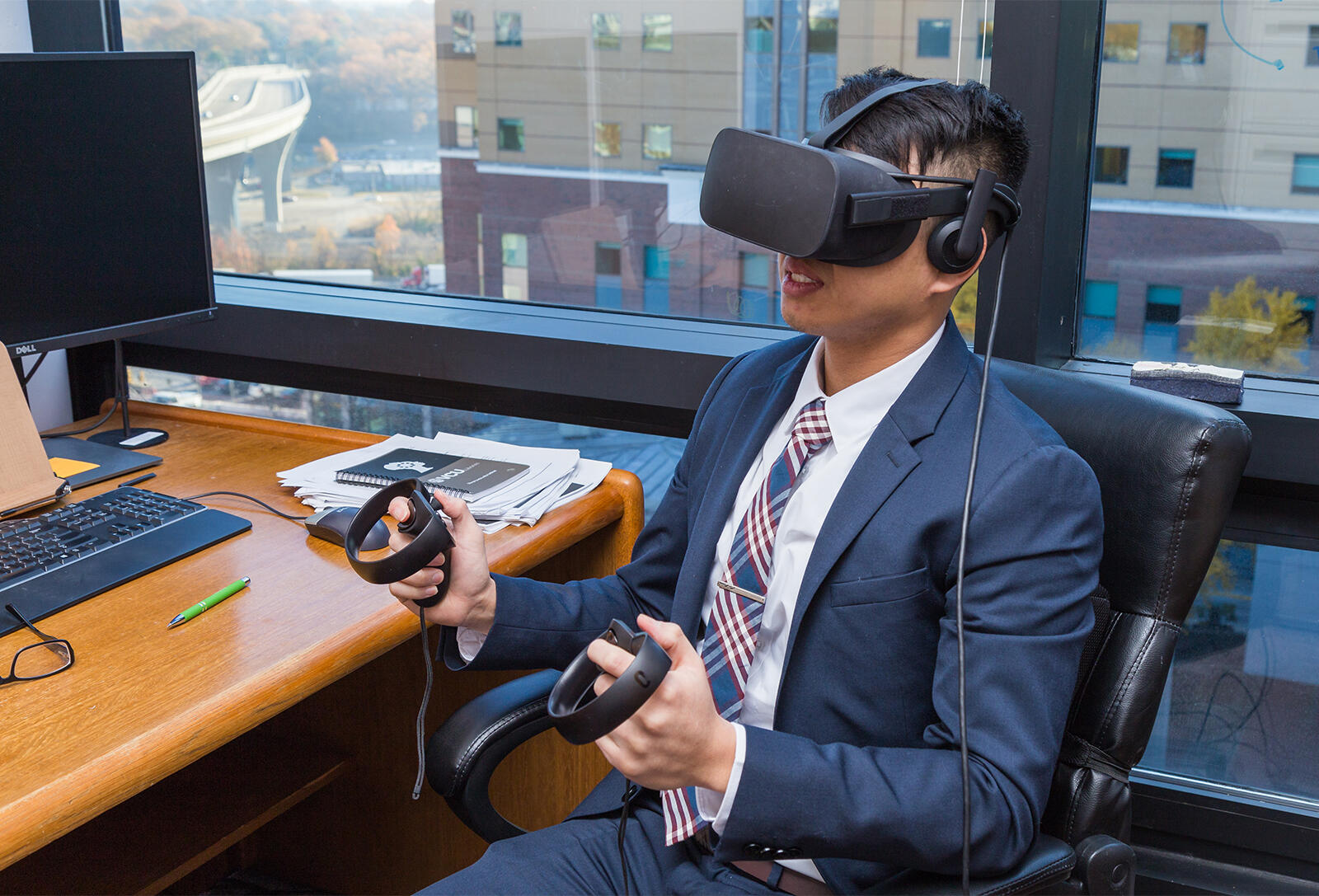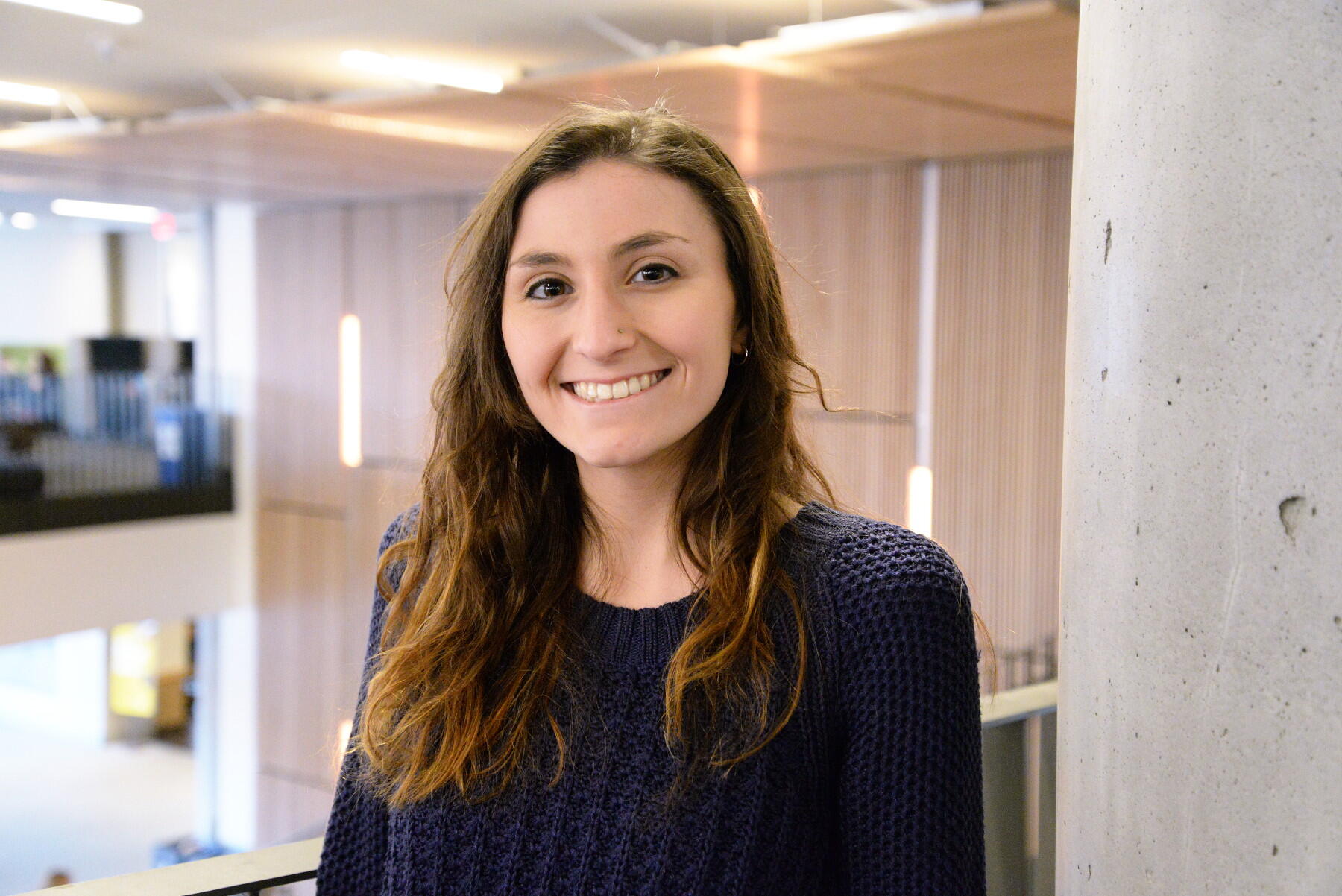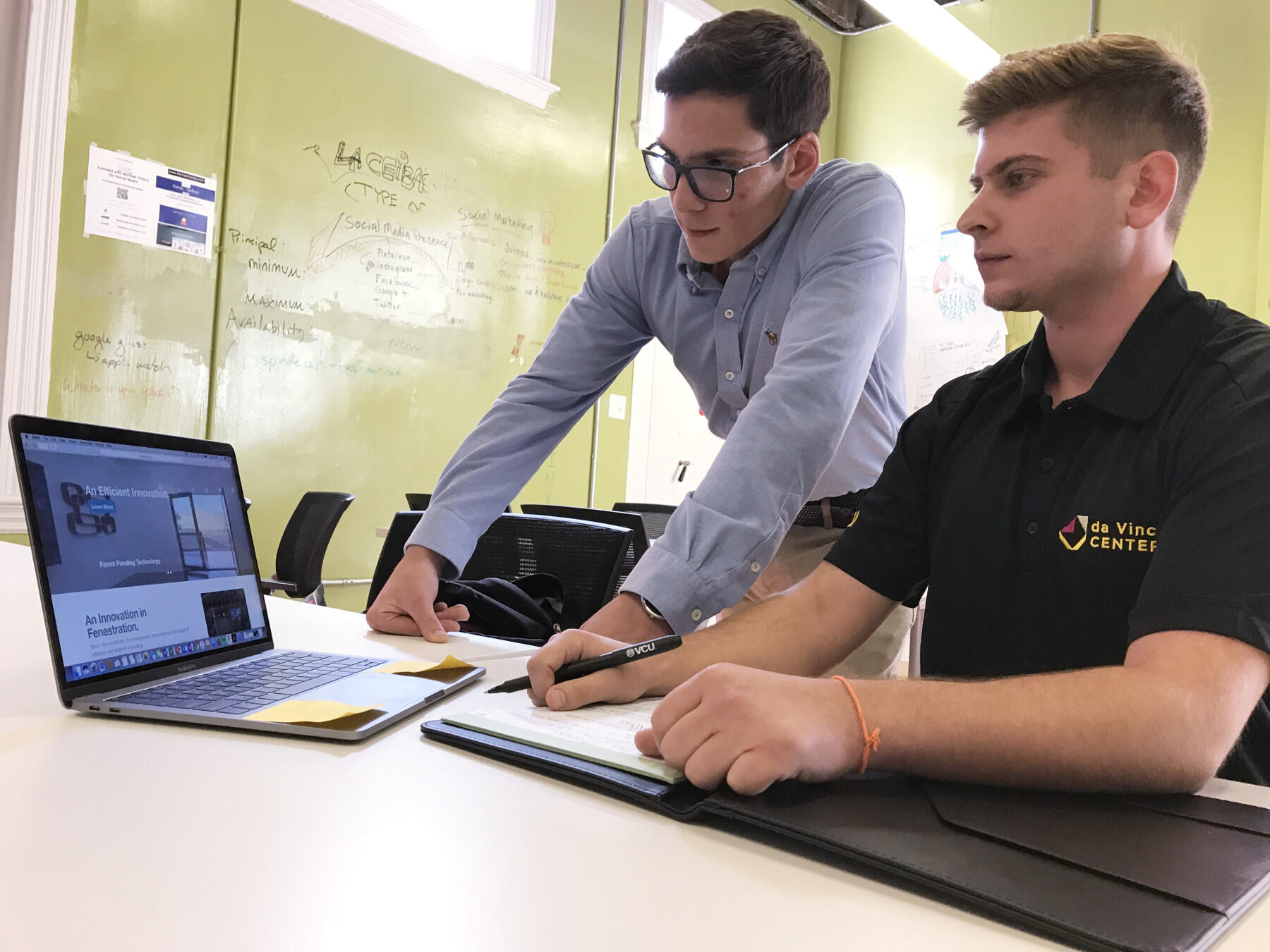
April 17, 2018
Demo Day showcases VCU student-led startups as they compete for $25,000 in funding
Share this story
A new kind of patio door system that can open as a French door or as a sliding glass door. A phone application to assist children, especially with autism, assimilate to new health care environments through virtual reality. A catheter that is more resistant to bacterial infection.
These are just some of the 18 Virginia Commonwealth University student-led ventures that are finalists in the university’s newly expanded and revamped pre-accelerator program that helps entrepreneurial and innovative students turn their promising ideas into viable startup companies.
The finalists will showcase their ventures as part of the 2018 VCU Demo Day, providing an opportunity for Richmond-area investors, innovators and entrepreneurs, as well as members of the VCU community and general public, to hear dynamic pitches from VCU students as they compete for $25,000 in funding.
The event will be held Friday, April 20, at 5 p.m. at the VCU Brandcenter, 103 S. Jefferson St. Following an opening reception, VCU President Michael Rao, Ph.D., will provide remarks.
“The finalists are impressive for their quality as well as their diversity,” said Garret Westlake, Ph.D., executive director of the da Vinci Center, a collaboration of VCU’s schools of the Arts, Business and Engineering and the College of Humanities and Sciences to advance innovation and entrepreneurship. “Multiple finalist teams have been successful in statewide pitch competitions during the spring semester, which is a change from years past. We also have physical products, consumer goods, medical and art-related ventures this year for one of the most diverse cohorts in history.”

The pre-accelerator program, VCU Pre-X, shifted this semester to a new model in which all students who met minimum requirements were able to access the curriculum, tools and mentorship. As they progressed through the program, participants had to meet benchmarks and compete with one another for funding.
In the past, the program supported a small number of promising startups. This semester, more than 100 students working on roughly 70 ideas took part. The participants came from 10 of VCU’s schools and the College of Humanities and Sciences.
“Through a commitment to access and excellence, the new Pre-X saw an almost 2,000 percent increase in student participation,” Westlake said. “A great aspect of the venture creation space is that a larger funnel yields more viable startups out the other end and we saw that this year with a dramatic increase in the number of viable startups.”
The addition of so many more students and startup concepts helped foster a true entrepreneurial community this semester, said Aaron Forrester, a faculty member in the da Vinci Center who is co-leading the Pre-X program.
“Overwhelmingly, we heard from students about the ‘buzz’ or ‘vibe’ of the group encouraging and prodding them on to push themselves,” he said. “This would not have been the case if we only took a small select group of teams and handed them funds. The competition mixed with camaraderie was so special.”
Open to all VCU students, Pre-X provided participants with an opportunity to benefit from a $30,000 fund, a wide array of industry mentors and the option to earn academic credit.
“What has been most rewarding is seeing the campus and community collaboration with Pre-X mentors, faculty and staff investing a significant amount of time with Pre-X student participants,” said Somiah Lattimore, chief creative officer and director of experiential learning at the da Vinci Center.
At Friday’s Demo Day, the finalist teams will have a chance to share their business concepts and plans for the future.
“The idea is to give them a broader possibility to find traction and champions in the community,” Forrester said. “Our ultimate goal is student real-world success. Demo Day helps give them that chance.”
One student finalist who will be presenting his concept on Friday is Desmund Delaney, a senior financial technologies major in the School of Business, who is part of a team called “Common Cents,” which aims to teach financial literacy to students in underserved communities.
“The thing that I enjoyed most about Pre-X [was] being reintroduced to the entrepreneurial spirit,” he said. “It is genuinely refreshing to be surrounded by teams with the moxie to try to make their dreams a reality. Entrepreneurs are inherently a little off – no one in their right mind would willingly do what we do – and it feels amazing to be back amongst ‘my people.’”

Another finalist, Kathryn Rainer, a senior majoring in mass communications with a strategic advertising concentration in the Richard T. Robertson School of Media and Culture, is part of a team behind “Keeping Love Alive,” a dating platform aimed at people with terminal or chronic illnesses and severe physical or mental impairments.
“The Pre-X program has been incredible,” Rainer said. “All assignments have been extremely helpful in furthering along our business concept. The mentors and instructors were hands-on and have given us advice that will give us a better competitive advantage. The support we’ve had and the huge amount of research we’ve gathered during this semester has transformed my original idea into something larger than I had imagined.
“I was surprised that I was accepted into the program, but I’m even more surprised that my business concept has made it through multiple rounds of pitching and is now being featured in Demo Day,” she added. “The Pre-X program has been one of the biggest highlights of my VCU experience.”
Yet another team, Efficient Innovations, will show off their designs for the “French Slide,” a new kind of patio door.

“The da Vinci Center and the Pre-X program have provided the Efficient Innovations team with invaluable networking resources that have helped further the progression of bringing the French Slide to market,” said Efficient Innovations team member Matthew Sozio, a Master of Product Innovation graduate student.
Over the last month, Efficient Innovations participated in The Launch Place’s IdeaFest business pitch competition in Danville and at the Tom Tom Founders Festival American Evolution Innovators Cup in Charlottesville. The team placed in the top three of both competitions.
Friday’s Demo Day will showcase not only the individual student-led teams, but VCU’s culture of entrepreneurship and innovation as well, Forrester said.
“Our finalists represent a cross-section of our diverse university landscape, proving that great ideas can start anywhere, not just in one or two places on campus. They are also an example of hard work and perseverance,” he said. “Innovation can come from anywhere. I see our goal in da Vinci as making sure it goes somewhere.”
Subscribe to VCU News
Subscribe to VCU News at newsletter.vcu.edu and receive a selection of stories, videos, photos, news clips and event listings in your inbox.










